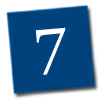
Nuchal Fold Testing, also referred to as the NT scan or the Nuchal Fold Scan, is a test that looks for signs of Down’s Syndrome and other chromosomal abnormalities. It involves measuring the clear or translucent space that is at the base of a baby’s developing neck. Claim Your 20 Free Pregnancy Tests – Click Here

The Nuchal Fold test has to be done when you are between eleven and fourteen weeks of a woman’s pregnancy. This is because this is when the back of a baby’s neck is still transparent. The last day that a Nuchal Fold test can be performed is 13 weeks, 6 days of pregnancy.

The Nuchal Fold test is not invasive at all, and it is not painful. The test is done via an ultrasound to measure the clear space at the base of a baby’s neck. You see, babies with Down Syndrome and other chromosomal abnormalities tend to accumulate more fluid at the back of their necks during the first trimester of pregnancy, so this area will be larger than it is on other babies.

No, the Nuchal Fold Test does not give a clear diagnosis of a problem. It only indicates where there might potentially be a problem. It gives you an assessment of your baby’s risk, and if your baby is determined to have a high risk, you will have to choose whether or not to have additional testing done. You might choose to have an amniocentesis or a CVS test done to determine whether or not your baby actually has a problem.

Since the Nuchal Fold Test is done via an ultrasound, there is no inherent risk to the mom or the baby. However, there is around a five percent chance of a false positive with the Nuchal Fold Test, so all moms to be should be aware of that going in. The test results are usually given as either a “positive” or “negative,” or as a ratio, such as a 1 in 87 chance, etc.

As we all know, older moms have a higher chance of having a baby with Down Syndrome. For example, a mom to be at age 25 has around a 1 in 1040 chance of having a baby with Down Syndrome. Moms to be who are age 40 have around a 1 in 75 chance of having a baby with Down Syndrome. Therefore, age is combined with the measurement of the base of a baby’s neck to determine what a mother’s risk is.

Since the Nuchal Fold test has to be done at such a precise time during pregnancy, there usually isn’t enough time to retest a woman to determine if her results were accurate or not. You will usually meet with a genetic counselor if your results are not great, to decide what to do next. Your genetic counselor can also help you to decide if you would like to go the more accurate, invasive tests for chromosomal abnormalities.










Comments